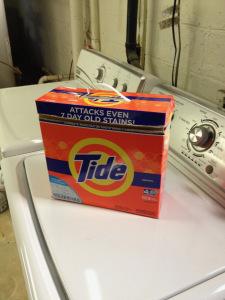One of the fun things about the Oxford Dictionaries blog is that you learn unexpected things about words. In fact, you can often find something profound in a matter of a couple of seconds that will make you stop and scratch your head. A recent post by Gary Nunn titled “Good clean fun? The shaming language of food and disease” makes the point that English, like other languages, shames by default. That’s worth considering. Religions are engines of social control, and many of them have highly developed techniques of shaming people into adherence. One of the most famous is the shunning practiced by some Anabaptists, but it certainly isn’t the only tradition that brings guilt to bear.
Some people, psychologists say, suffer from high levels of personal guilt. Shaming is particularly painful to such people and language, it seems, might not be their friend. Others, however, can take quite a verbal hiding and still not feel any remorse. In other words, shame doesn’t seem to work on them. If some people don’t need it and others are immune to it, why do languages excel at inducing shame? The article by Gary Nunn is looking at how “clean,” which was generally used to mean tidy, healthy, free from vermin, came to mean “standard behavior.” From its original usage, “clean” moved to describe—often by its antonyms—things that really don’t fall into that category; foods and sexual behaviors, for instance, can be labeled unclean or dirty, even if they are hygienic and natural. The purpose of this evolving usage seems to be another way to shame someone.
Human beings are social creatures. Although fascinated by violence, most people do not like to use it unless it’s necessary. We’d rather settle things civilly. One way to do that is by using words instead of weapons. Our languages are built for that. We all know individuals who can bring us down with a few harsh words. No physical pain has to be induced, or even threatened. Collectively, the will of the people—at least, so I’m told, outside the United States—influences decisions that governments make. I’ve mentioned before that even non-literate creatures, such as the great apes, will not tolerate injustice in their communities. Sure, alphas may be a necessary evil, but when they abuse their station the collective brings them down. In our culture where nearly all the wealth—by far the vast majority of it—is controlled by 20% of the population, and among them, the majority in the top 1%, we need some stronger words for shame. Or it may be that some people are simply immune.

